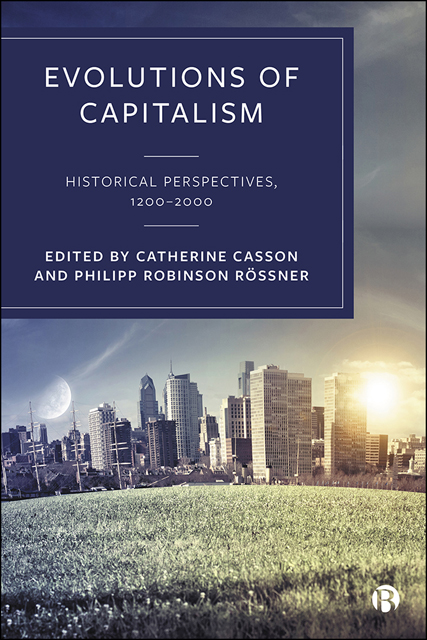Book contents
- Frontmatter
- Contents
- List of Figures and Tables
- Notes on Contributors
- Acknowledgements
- 1 Introduction
- 2 The Market as an Institution: Theory and History
- 3 Regulating Capitalism
- 4 Capitalism and State Ownership Models
- 5 Comparative and Connected Global Capitalism(s)
- 6 Capitalism, Imperialism and the Emergence of an Industrialized Global Economy
- 7 Religion and Capitalism
- 8 Capitalism and the Environment
- 9 Capitalism and Income Inequality
- 10 Conclusion
- Index
5 - Comparative and Connected Global Capitalism(s)
Published online by Cambridge University Press: 13 October 2022
- Frontmatter
- Contents
- List of Figures and Tables
- Notes on Contributors
- Acknowledgements
- 1 Introduction
- 2 The Market as an Institution: Theory and History
- 3 Regulating Capitalism
- 4 Capitalism and State Ownership Models
- 5 Comparative and Connected Global Capitalism(s)
- 6 Capitalism, Imperialism and the Emergence of an Industrialized Global Economy
- 7 Religion and Capitalism
- 8 Capitalism and the Environment
- 9 Capitalism and Income Inequality
- 10 Conclusion
- Index
Summary
Introduction
Bitu, also known as Bighu or Begho, was a market town that lay in the Banda region of West Africa just south of the River Volta in what is present-day Ghana. It was identified as something akin to Eldorado within the Arab world – something immensely wealthy and just beyond reach – a perception adopted by European actors as they became familiar with the region. In the 17th-century history of the Songhai Empire, the Ta’rīkh al-Fattāsh, the historiographer Ibn al-Mukhtar recorded that during the rise of the Malian empire ‘the gold mines’ of the western Niger ‘have no parallel in all the Takrūr, except in the land of the Bergo’ at Bitu. Even though merchants (known as Wangara) from Timbuktu and other cities within the Malian and Songhai empires had regularly participated in the trading caravans southward, al-Mukhtar could only identify the trading centre at Bitu as a source of gold and had no knowledge of the actual Akan mining centres further south (Wise, 2011: 74– 5; Nobili and Shahid Mathee, 2015: 37– 73). The Moroccan physician and author Wazir al-Ghassani similarly wrote about ‘a place called Bitu where there are mines of gold and of gold dust’. He understood that the town was where ‘those who have the salt of Taghaza origin and those who have the gold of Bitu origin meet each other’ but remained unable to describe the origins of the gold, only that it was a source ‘without equal in the universe’ and that ‘everyone finds great profit in going there to trade, and thus fortunes are made of which God alone knows the size’. Indeed, from al-Ghassani's perspective, Timbuktu itself owed its wealth to the Bitu caravans, and he argued that ‘it is because of this blessed town that caravans converge at Timbuktu from all points of the horizon, from east, west, south, and north’ (Wilks, 1982a: 343).
For these commentators, Bitu was a site of international trade that served to connect the merchants of the western Niger – from cities with their own advanced economies – with a precious commodity that underpinned economic activity across northern Africa and beyond.
- Type
- Chapter
- Information
- Evolutions of CapitalismHistorical Perspectives, 1200-2000, pp. 100 - 126Publisher: Bristol University PressPrint publication year: 2022



